

Faustas Norvaisa
A Growth & Product Expert with 9 years of experience in revenue diversification, international expansion, SEO, and digital marketing. Passionate about scaling businesses and building global brands, he empowers companies to thrive with his motto, "sharing is caring.
International SEO for Startups: How to Enter New Markets Without Wasting Budget
International SEO services enable startups to expand into new markets without wasting their budget on short-term ads. For founders looking to expand globally, organic visibility is one of the smartest investments. Search engines guide buyers long before they contact a company, and ranking early builds trust. Startups that skip SEO often struggle with high costs, weak brand awareness, and limited reach. With the right international strategy, your business can attract local traffic, adapt content for culture, and compete with established players – while spending far less than traditional market entry methods.
Expand Globally Without Wasting Budget!
aboveA’s international SEO services for startups give you visibility, leads, and trust in new markets-faster and more cost-efficient than ads.
Table of Contents
Why Startups Need International SEO from Day One
International SEO for startups is more than a marketing tactic; it’s a survival strategy when you try to enter new markets. Startups often face the challenge of being unknown in a crowded space. Without visibility, even the best product fails to reach customers. This is where international SEO services provide founders with a genuine advantage.
Search behavior changes by country. Buyers in the U.S. might search differently from those in Germany, Singapore, or Brazil. A global SEO plan ensures your brand appears where people are actually looking. By adapting to each market’s search intent, your startup gets discovered earlier and trusted faster.
Another reason startups need SEO for global growth is cost. Paid ads consume limited funds, and once the campaign ends, visibility disappears. Organic rankings, on the other hand, build long-term credibility and continue to generate traffic without requiring constant spending. For startup market entry, this means lower risk and better ROI.
International SEO also provides data before you commit significant resources. Keyword research across countries shows demand, competition, and cultural differences. Instead of guessing, you can test expansion with a clear strategy and avoid wasting budget.
Finally, strong global ranking strategies allow startups to scale step by step. You can optimize content for multiple languages, launch in selected regions, and monitor conversions per market. Each win adds up, creating a compounding growth effect that helps you compete against bigger players. For startups, the choice is simple: either invest early in international SEO or risk paying far more later to catch up.
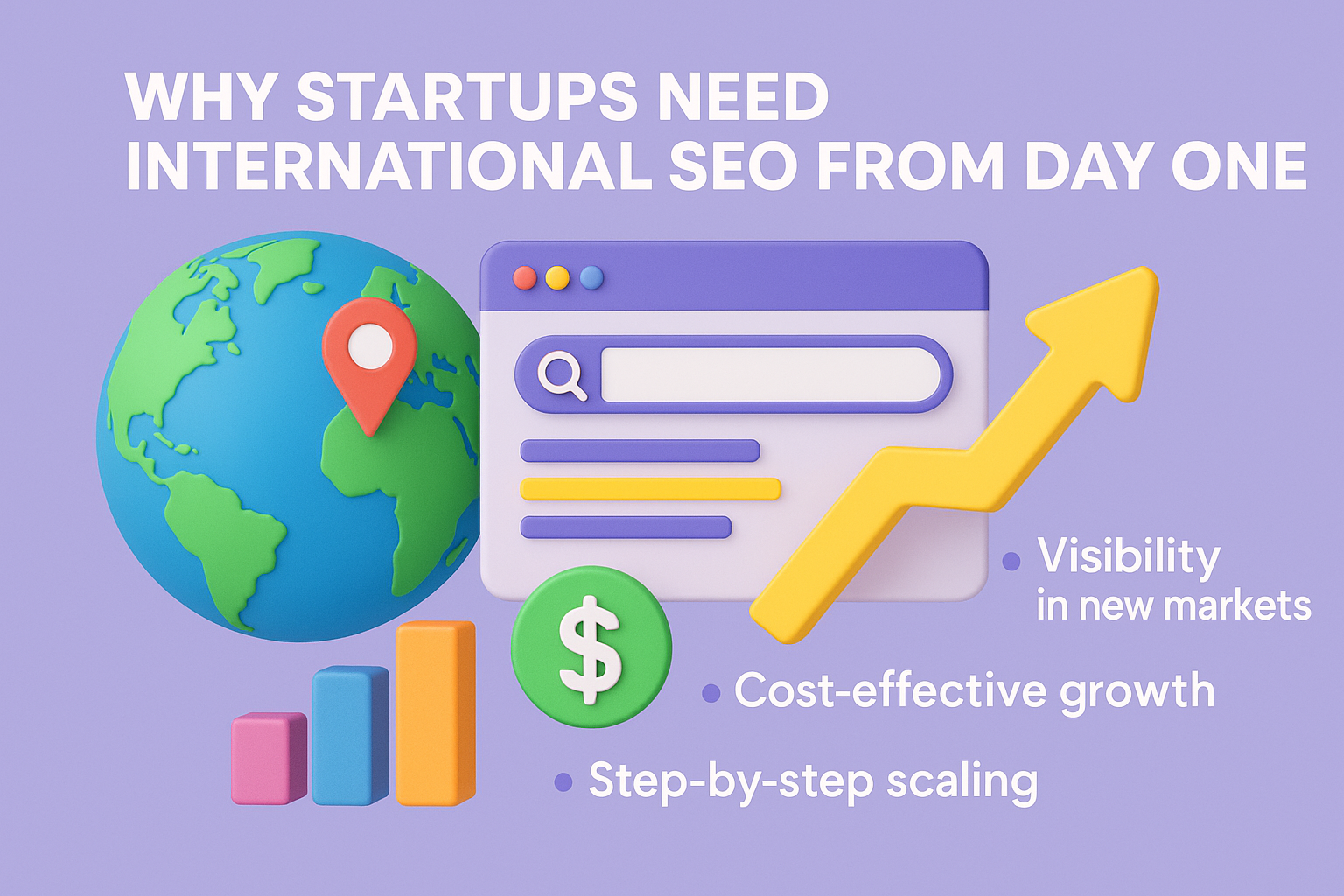
Common Mistakes Startups Make in Global Market Entry
Expanding into new regions looks exciting, but many startups waste time and money by skipping core parts of an international SEO strategy. To help you avoid that, here are two of the biggest areas where founders fail.
Content and Localization Mistakes
One of the most damaging startup market entry mistakes is launching the same website in every country. Search engines reward local relevance, so a single template without adjustments won’t work. Startups also confuse translation with localization. Simple translations often overlook cultural nuances, currencies, measurements, and tone. The difference between localization vs translation is massive. Customers want localized SEO content that feels natural, not robotic. Failing to complete this step results in lower rankings and reduced trust.
Another frequent global SEO error is relying only on Google. While it dominates in many countries, China uses Baidu, Russia favors Yandex, and South Korea prefers Naver. If your international SEO services strategy ignores local search engines, you miss out on significant traffic opportunities.
Budget, Compliance, and Tracking Mistakes
Another common pitfall for startups is overreliance on paid ads instead of focusing on building organic visibility. Paid clicks stop the moment you cut spending. In contrast, international SEO services for startups create long-term rankings that compound over time, delivering traffic without incurring constant costs.
Compliance is another overlooked issue. Entering Europe without GDPR readiness or expanding to China without local internet compliance can sink your startup market entry strategy. Startups that ignore regulations risk fines, penalties, and damage to their reputation.
Finally, many founders skip proper global SEO tracking. If you don’t measure results per market, you won’t know where the budget works best. Smart market entry SEO means setting up analytics by region to prove ROI and refine strategy.
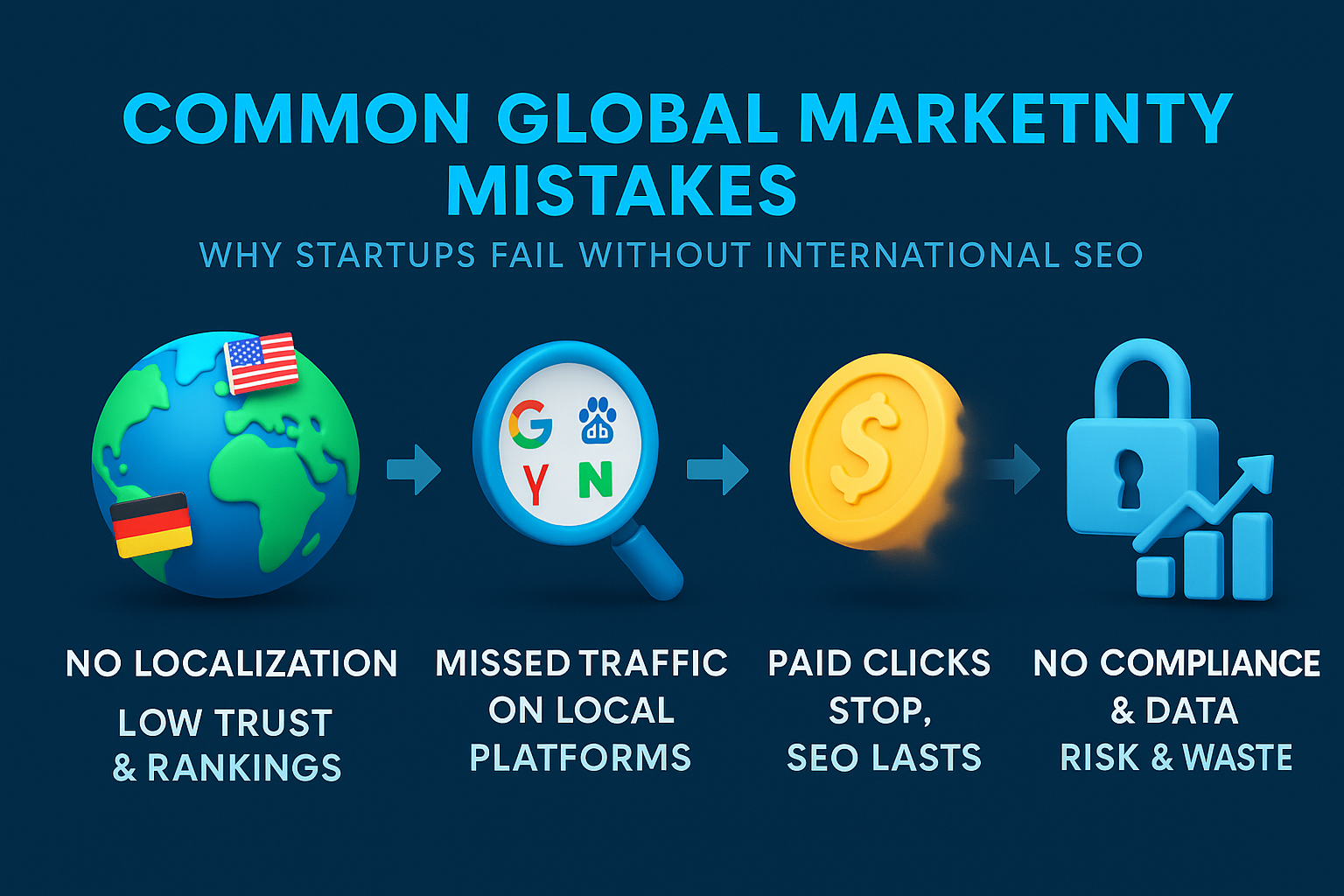
What Makes International SEO Services Different from Local SEO
Many founders assume SEO works the same everywhere. But international SEO services demand far more than local campaigns. Entering a new country means adjusting not only to new keywords but also to different languages, cultures, and even search engines. Startups that confuse local SEO vs international SEO often waste budget on tactics that don’t scale.
International SEO takes a broader view. Instead of ranking in one city or country, it builds visibility across multiple regions, ensuring your brand can appear in every market you want to reach. This requires a combination of technical precision, in-depth research, and ongoing adaptation.
Technical and Structural Differences
The first difference is technical. International SEO services often begin with selecting the optimal domain setup. Startups must decide whether to use ccTLDs (like .de for Germany), subdomains (de.example.com), or subdirectories (example.com/de). Each choice impacts rankings, authority, and maintenance. A weak decision here can block long-term growth.
Equally important is hreflang SEO. These tags tell search engines which version of your site to show in each region. Without correct hreflang implementation, users may land on the wrong version of your website. For example, a Spanish visitor may see English content, which can reduce trust and conversions. Startups also need fast websites in all markets. Hosting closer to the target region or utilizing CDNs enhances site speed, a crucial factor in global SEO performance.
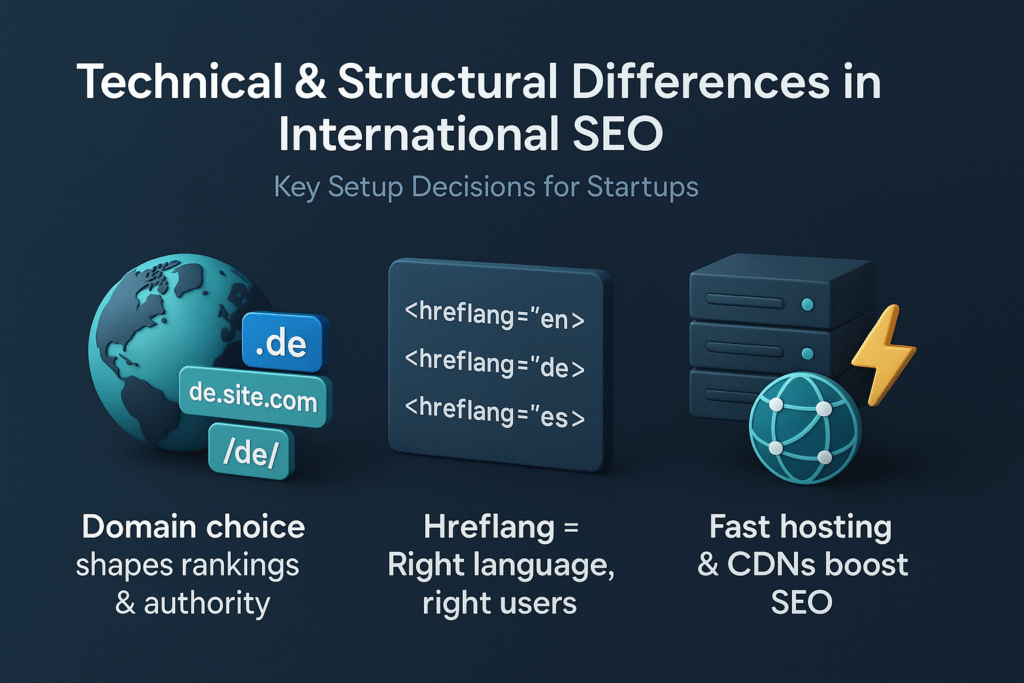
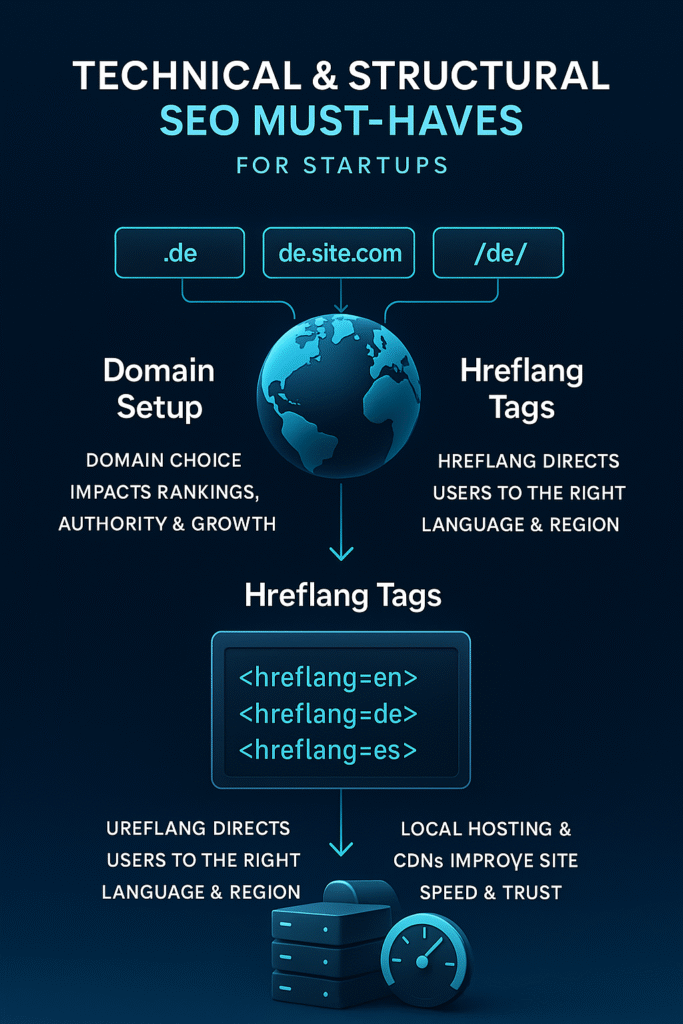
Research, Content, and Authority Differences
The second central area is research and content. Local SEO typically targets a specific city or region, focusing on a well-defined set of keywords. However, international SEO services necessitate global keyword research to identify how people search across languages and cultures. For example, buyers in the UK may search “trainers,” while in the U.S., they search “sneakers.” Without adapting, your site risks missing demand.
Content must also go beyond translation. Startups require content localization to accurately reflect their tone, product names, pricing formats, and buyer intent. Authority building shifts, too. Local SEO may focus on small directories and citations, while international SEO services for startups require regional partnerships, PR coverage, and local link building in each market.
Competitive Landscape and Market Signals
The third difference is competition. In local SEO, you’re usually fighting a handful of regional competitors. But with international SEO, you face established global brands that already rank in multiple countries. To win, startups must develop strong market entry SEO signals that demonstrate to both search engines and buyers why they should trust their business.
This involves optimizing key trust factors, such as local reviews, market-specific case studies, and regionally relevant content. Search engines reward signals that prove you’re a serious player in each market, not just recycling one-size-fits-all content.
Another factor is compliance. Regulations vary by country, ranging from the GDPR in Europe to data restrictions in Asia. Search engines consider compliance as part of trustworthiness. Startups using international SEO services that account for these signals stay ahead of global competition while avoiding costly penalties.
Step-by-Step International SEO Strategy for Startups
Expanding globally is exciting, but without the proper roadmap, startups can waste resources fast. A clear international SEO strategy ensures every step brings measurable results. Below are the six critical steps to follow if you want to succeed with international SEO services for startups and avoid wasting budget.
Market Research and Keyword Analysis
Every global expansion starts with research. International keyword research shows what buyers in each country actually search for. Words differ even in the same language; U.S. customers type “apartment,” while the U.K. uses “flat.” If your SEO content ignores this, you’ll miss traffic.
Research also reveals market entry SEO opportunities. You can find keywords with strong buyer intent and weaker competition, allowing your startup to capture new leads faster. Use tools like Ahrefs, SEMrush, or local SERP emulators to uncover this data. Done well, keyword analysis becomes your market validation.
Choosing the Right Domain Structure
Domain setup defines how search engines treat your international site. You have three main options:
ccTLDs (country code top-level domains) like .de or .fr – strongest local trust but harder to scale.
Subdomains like fr.example.com – easier to manage, but weaker for SEO authority.
Subdirectories like example.com/fr – efficient for authority sharing, but less clear for local targeting.
Selecting the right option is a crucial aspect of international SEO services, as it directly impacts rankings, brand credibility, and scalability.
Content Localization, Not Just Translation
This is where many startups go wrong. Translation alone rarely delivers results. Content localization adapts messaging to cultural norms, tone, and buyer expectations. That means adjusting product names, currencies, pricing formats, and even colors.
For example, a slogan that works in the U.S. might not resonate in Japan or Brazil. Localized content fosters trust, enhances rankings, and decreases bounce rates. With localized SEO content, you provide each market with a tailored experience while maintaining alignment with your global brand.
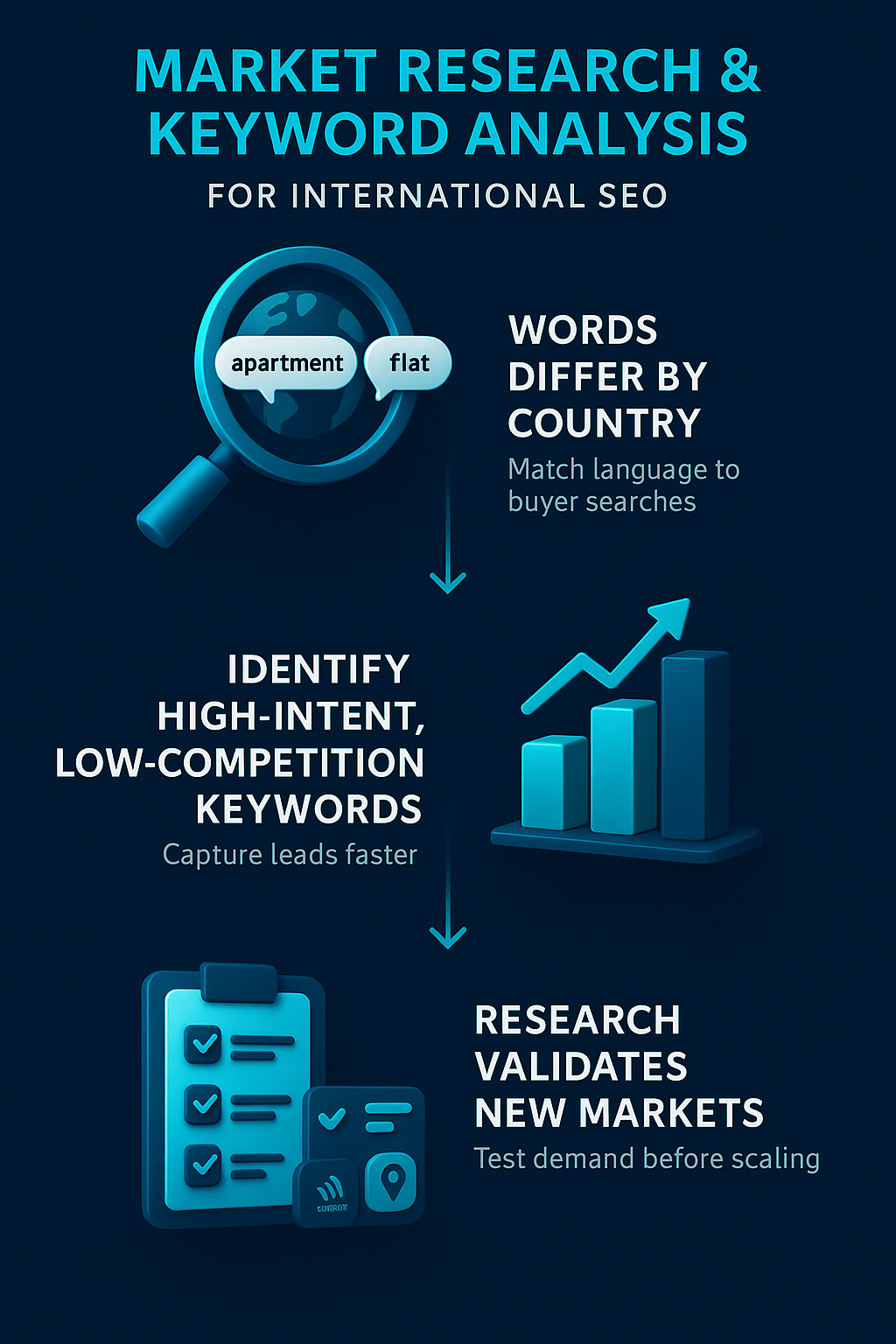
Technical Setup: Hreflang and Site Speed
Technical precision makes or breaks international SEO. Hreflang tags are vital – they tell search engines which language or regional version of your site to display. Without correct hreflang, your French users may land on English pages, which can lower trust and conversions.
Equally important is site speed optimization. Hosting closer to your audience or using CDNs reduces load times, which improves both rankings and user experience. Startups that skip these technical steps often waste budget fixing problems later.
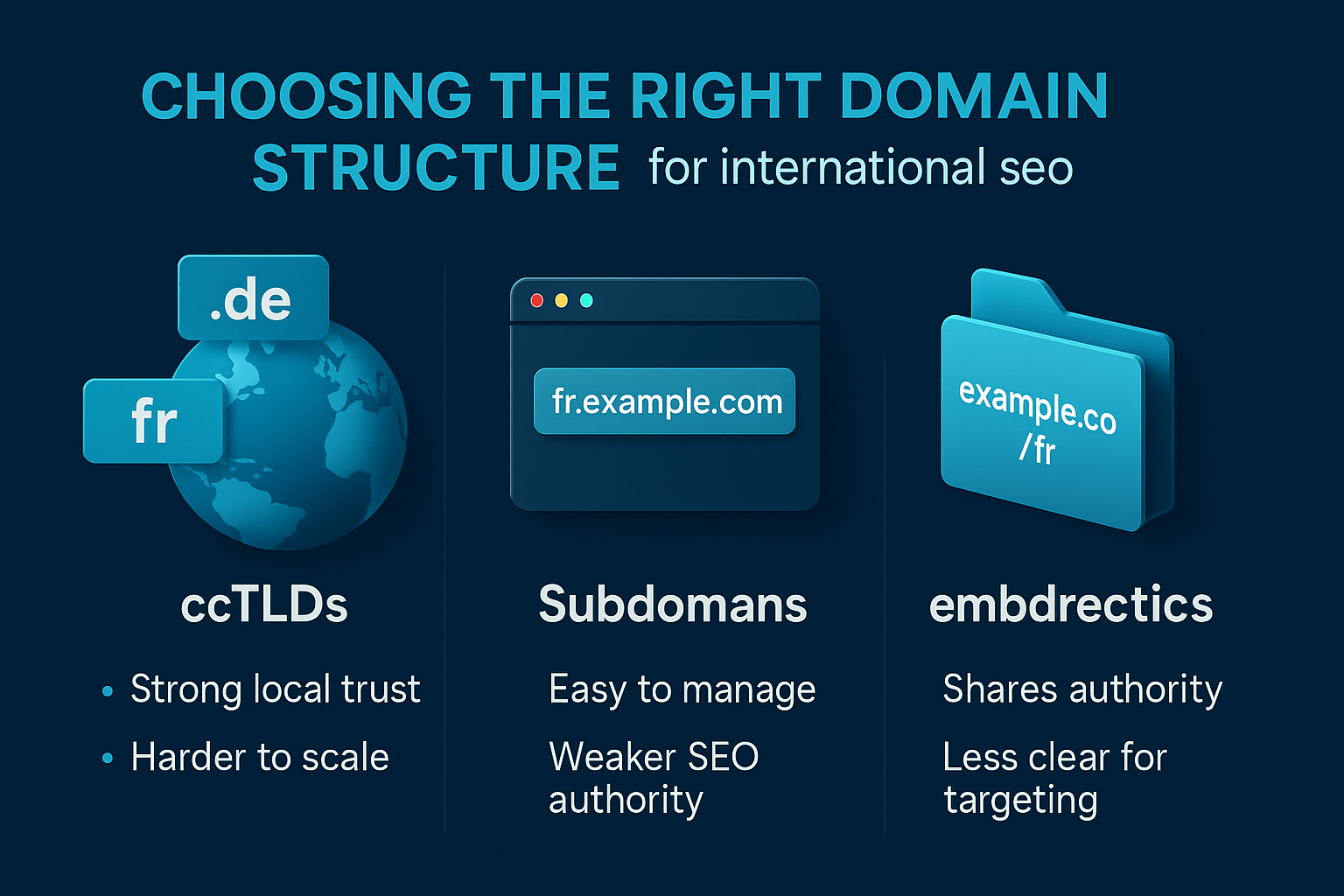
Building Regional Authority with Backlinks
Links are still one of Google’s strongest ranking signals. But with international SEO services, you need regional authority, not just global links. This means earning coverage from local media, securing guest posts on region-specific blogs, and forming partnerships with local businesses.
For example, if you’re entering Germany, backlinks from German publishers send strong market entry SEO signals. This not only improves rankings but also builds credibility with local customers. Authority is local, and startups must earn it market by market.
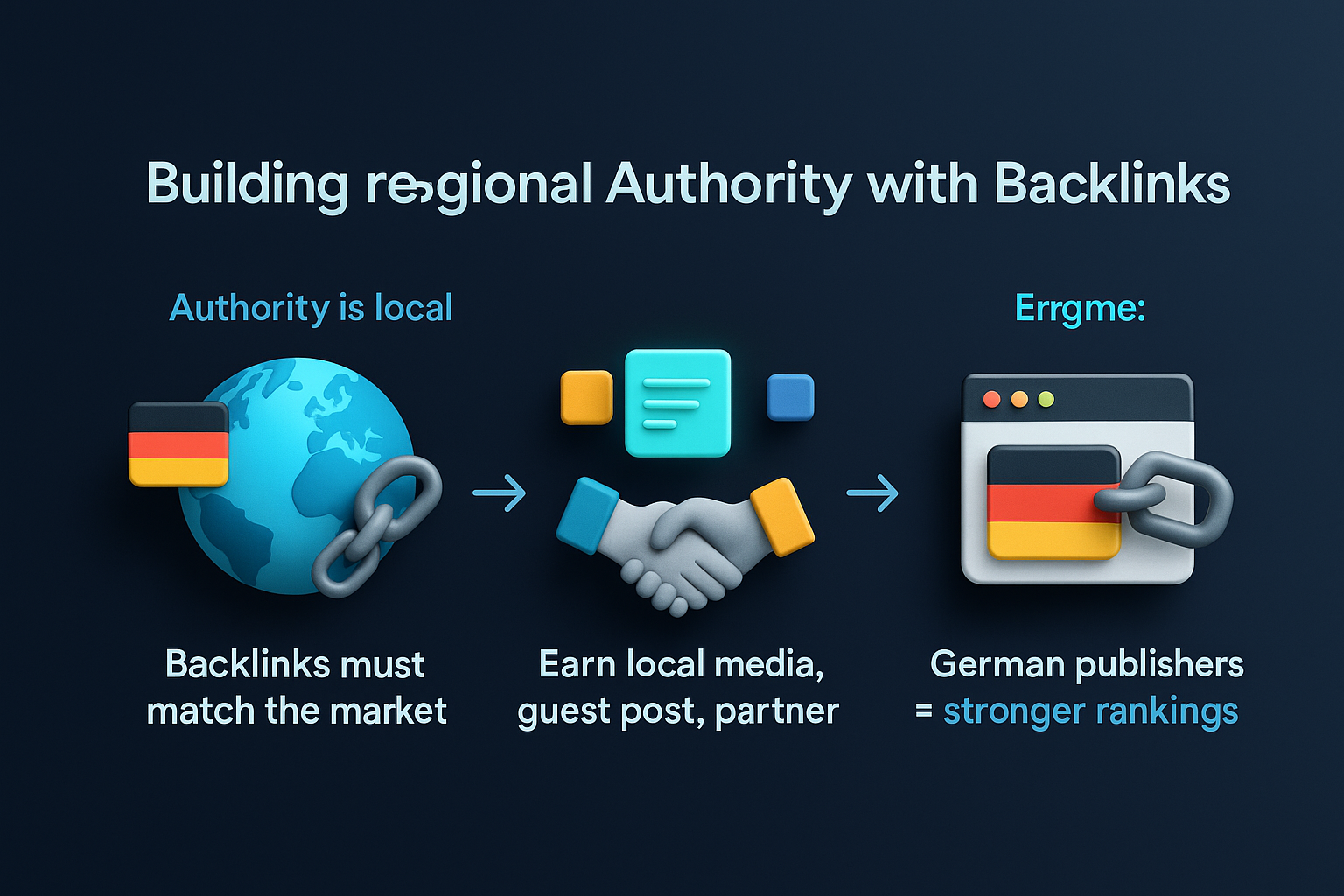
Analytics and Conversion Tracking per Market
The last step is measurement. International SEO services for startups don’t stop at traffic – they focus on conversions. You need to know which country delivers leads, revenue, or trial sign-ups.
Set up market-specific tracking in Google Analytics (GA4) or other relevant tools. Segment data by region to compare ROI across countries. This ensures your startup doesn’t overspend in weak markets and doubles down on profitable ones. With tracking, market entry SEO becomes a predictable growth engine.
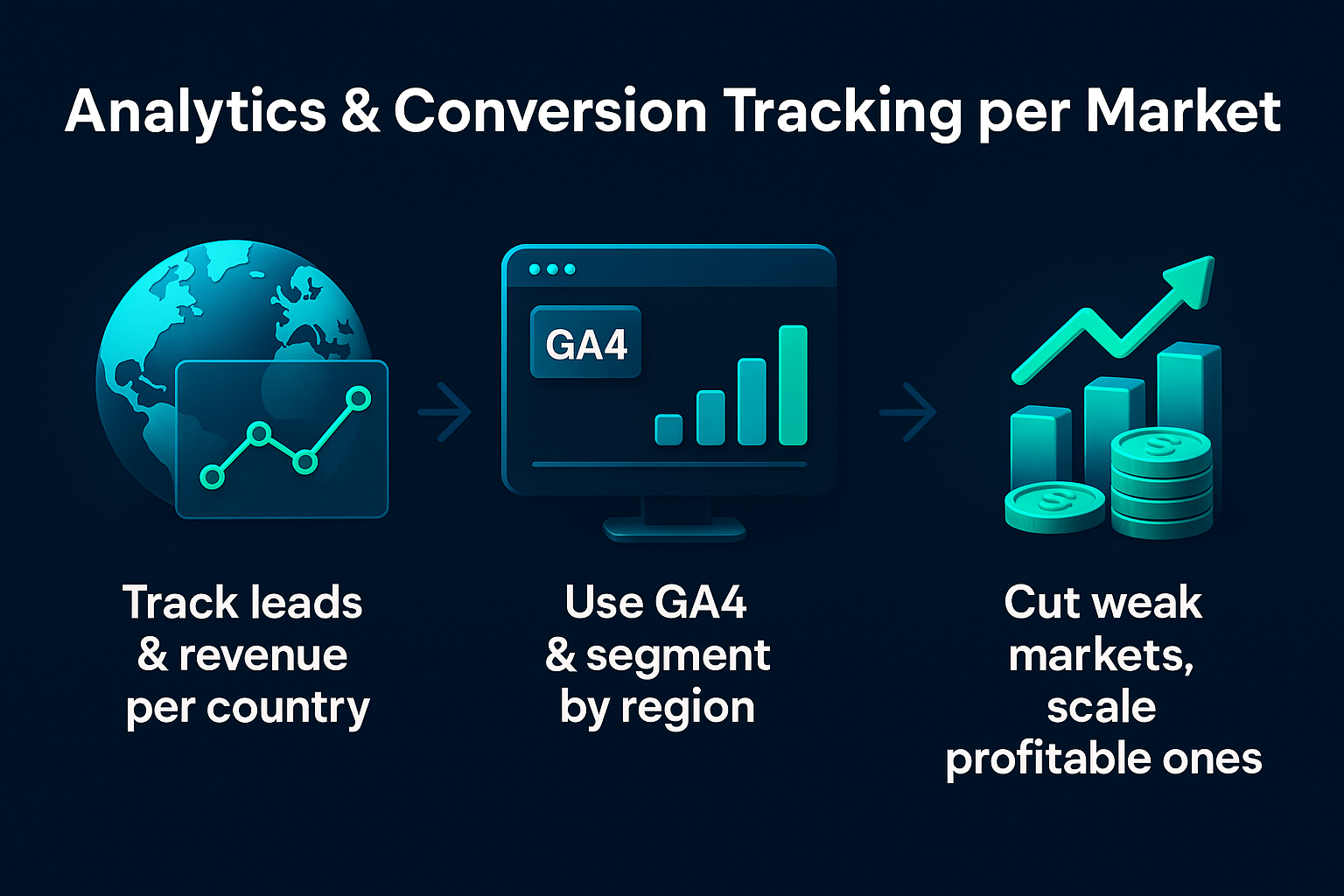
Competitor Benchmarking in Each Market
Before launching, analyze competitors’ SEO strategies in every region. Look at their backlinks, top keywords, and site structure. This helps identify gaps where your international SEO services can win. Competitor data is essential for a lean startup market entry strategy, ensuring you don’t waste budget fighting impossible battles.
Multilingual SEO and Content Management Systems
Managing multiple languages requires innovative systems. Startups should set up CMS platforms that support multilingual SEO with proper URL handling, hreflang tags, and translation workflows. A solid CMS reduces errors and ensures scalability as your startup expands into more countries.
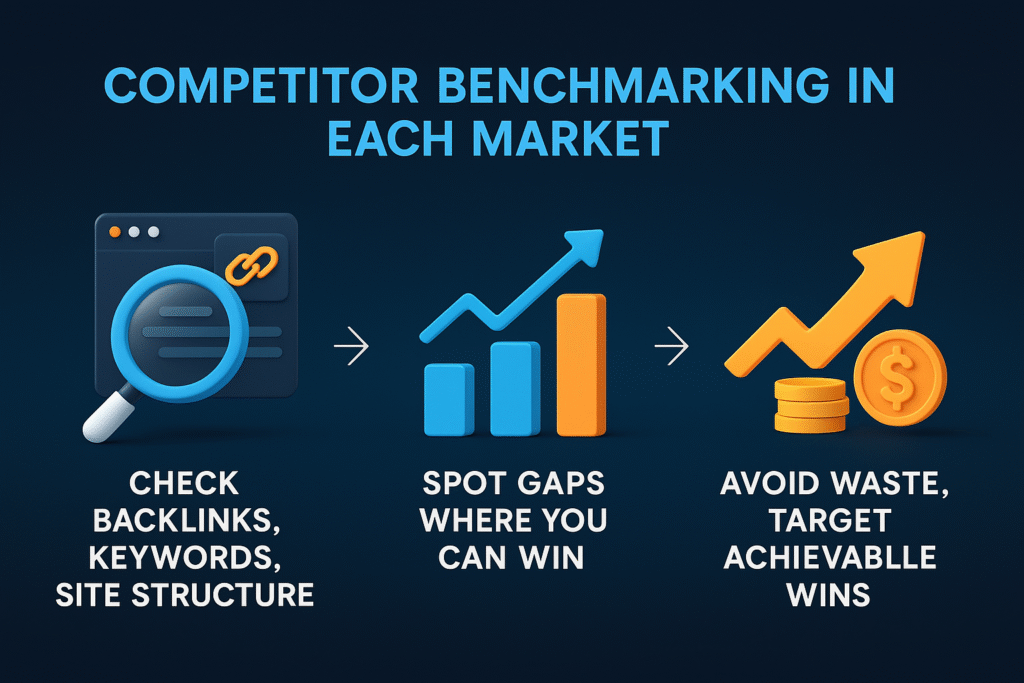
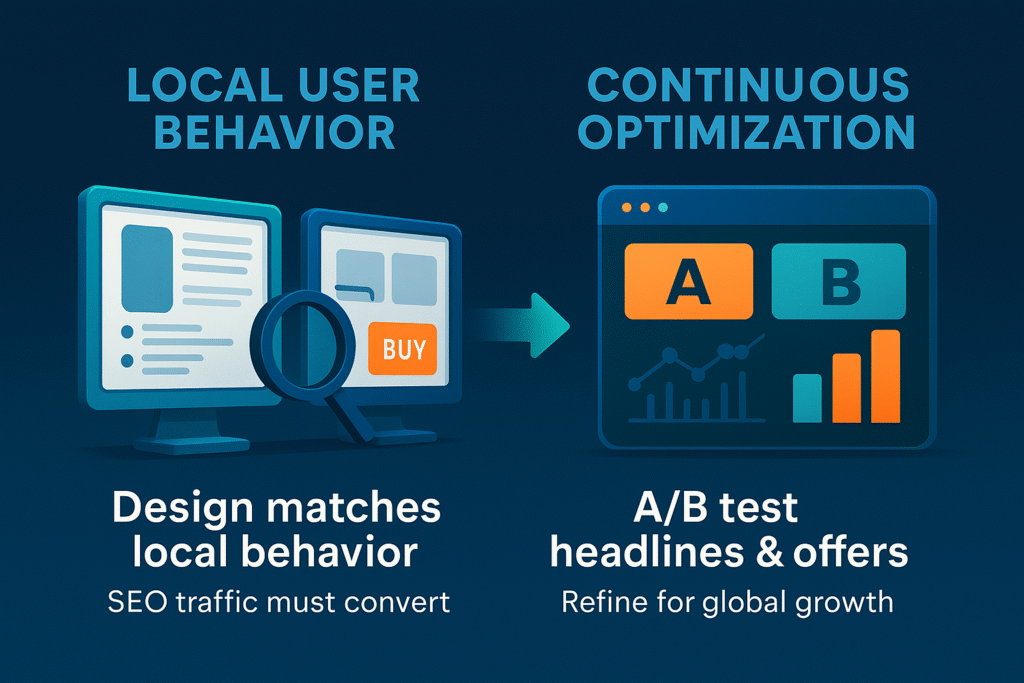
Local User Behavior and Conversion Design
SEO brings traffic, but design drives conversions. Each market has unique user behavior – Japanese buyers prefer detailed product information, while U.S. users expect speed and simplicity. Adapting layouts, CTAs, and even checkout steps is part of international SEO for startups because search visibility is wasted if visitors don’t convert.
Continuous Testing and Optimization
Markets evolve quickly. A strong international SEO strategy includes A/B testing headlines, content formats, and even local offers. Startups should continuously monitor their performance and refine it based on the data. This step ensures SEO for global growth stays relevant and profitable.
Case Study Examples of Startup Market Entry with International SEO
Real-world examples demonstrate how international SEO services enable startups to expand globally without overspending their budget. The following case studies highlight strategies that have transformed small companies into competitive players across various regions.
Case Study 1: SaaS Startup Expanding from Singapore to Europe
A SaaS startup based in Singapore provided workflow automation tools to small businesses. Following their success in Southeast Asia, the founders sought to expand into Europe. Initially, they relied on paid ads in Germany and France. While ads delivered clicks, the customer acquisition cost was unsustainable, and churn rates remained high. The team recognized the need for a long-term approach and turned to international SEO services.
The SEO strategy began with international keyword research across three languages: English, German, and French. They discovered that German buyers searched for “workflow management software,” while French users preferred “automatisation de processus.” Using this insight, they built localized landing pages for each market. Each page featured translated content, region-specific testimonials, and pricing displayed in euros. Hreflang tags were applied so users always landed on the correct version.
Authority building was another priority. The startup invested in regional link building by publishing guest posts on European SaaS blogs, joining local directories, and securing mentions in niche industry publications. They also participated in online events with European accelerators, which provided valuable backlinks and exposure.
To improve site performance for global users, they deployed a CDN with nodes in Europe. This cut loading times by 45% and reduced bounce rates.
Within six months, organic traffic in Germany grew by 140%, and in France by 120%. More importantly, trial sign-ups from organic search doubled. Compared to paid ads, the ROI from SEO was higher and continued improving month after month.
This case proves that market entry SEO can help SaaS startups scale into new continents by combining keyword research, content localization, technical SEO, and regional authority building. For early-stage companies, this approach offers growth without burning cash on endless ad campaigns.
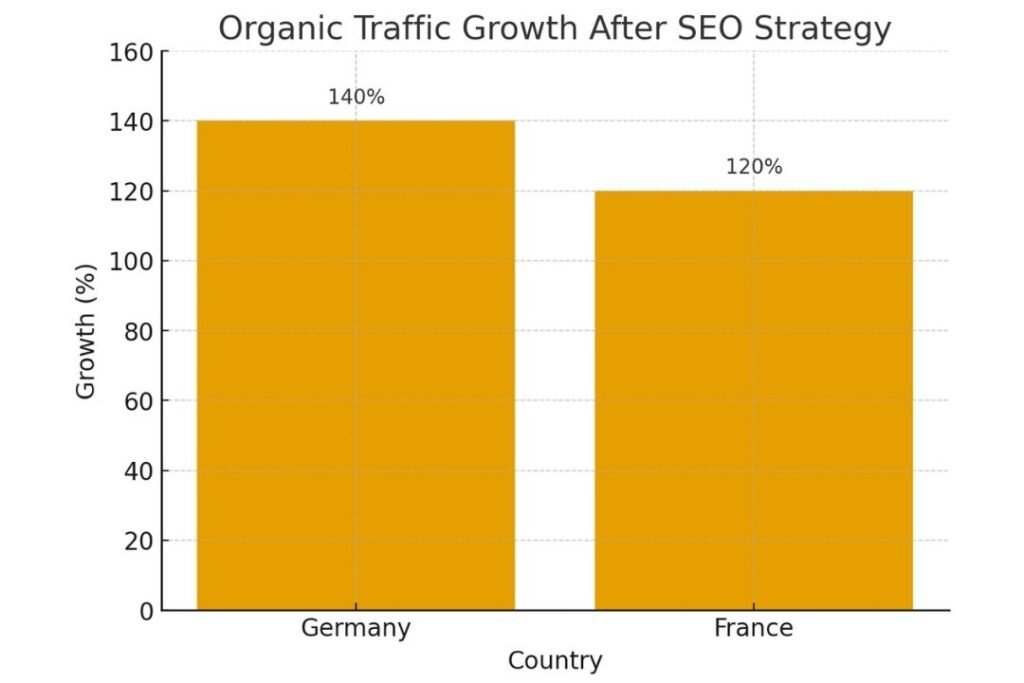
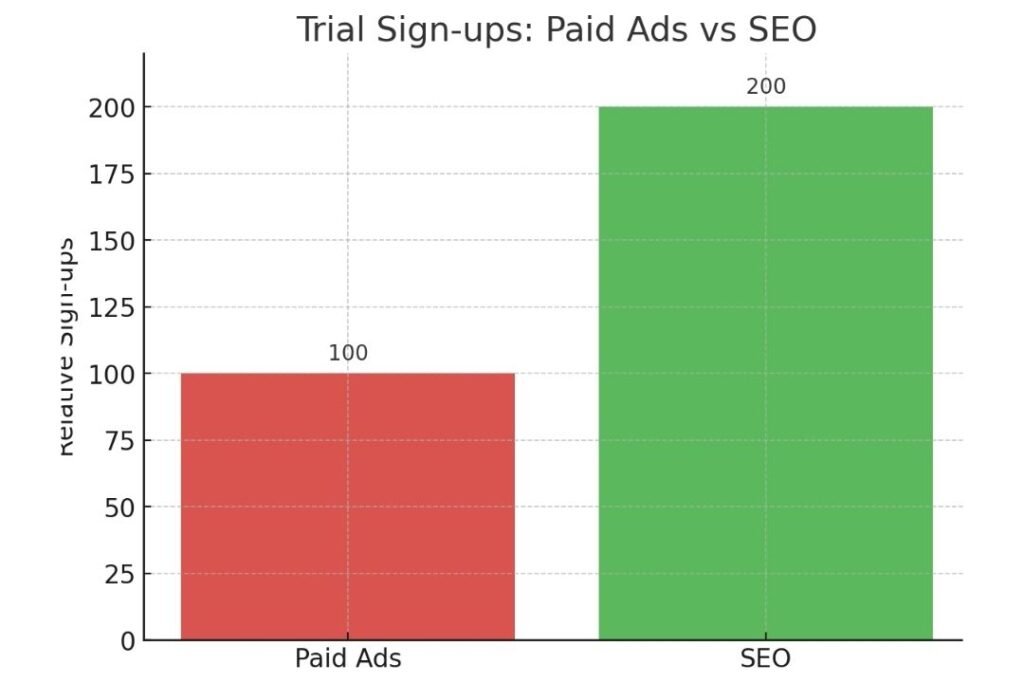
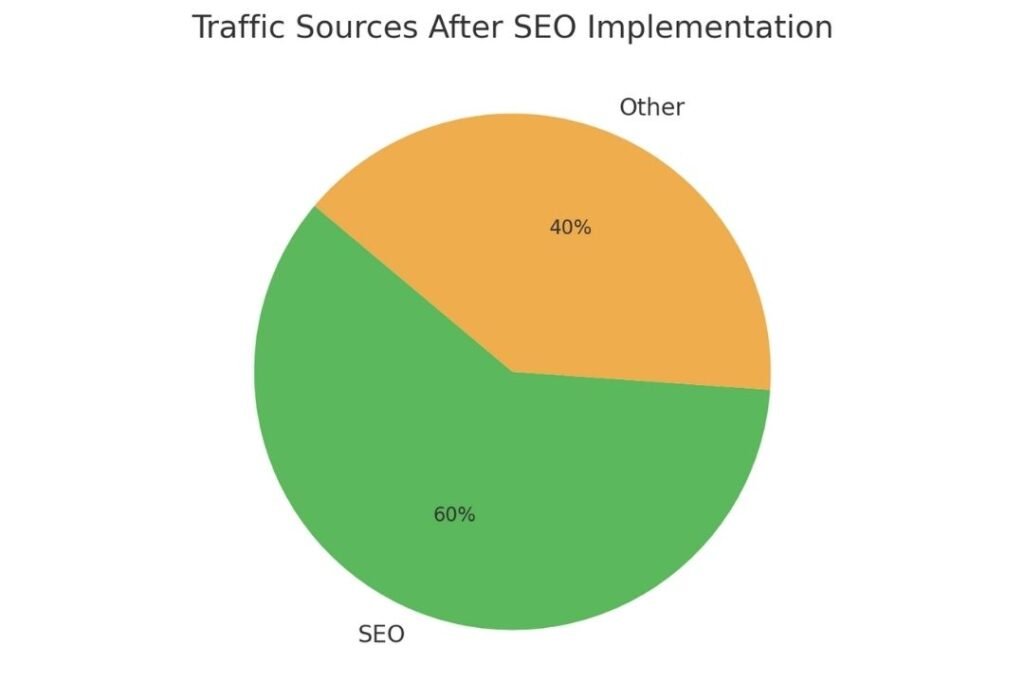
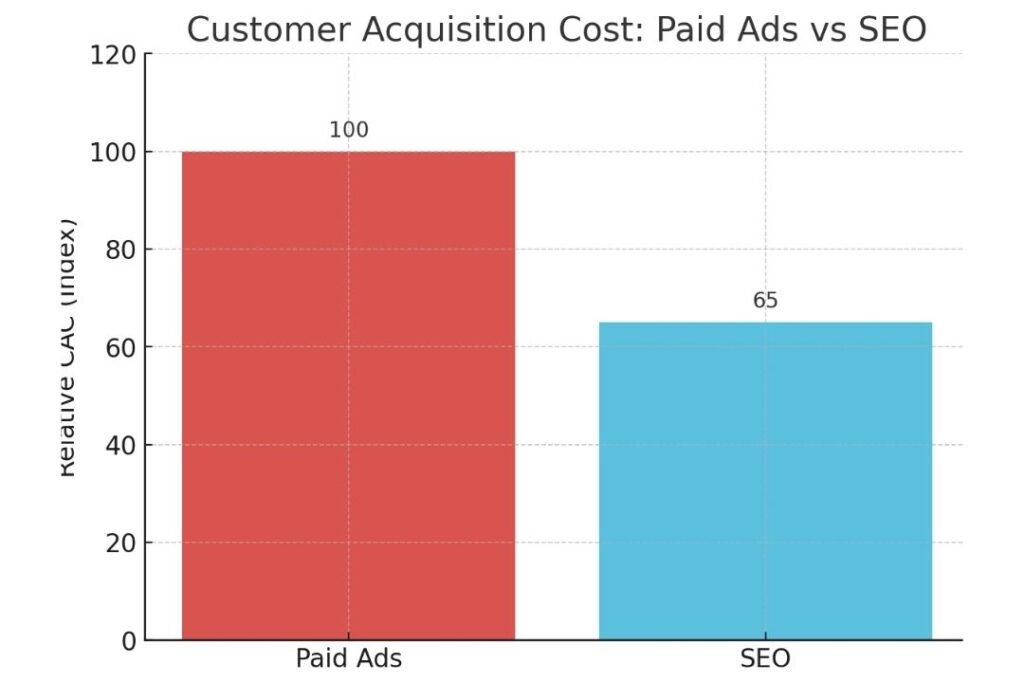
Case Study 2: Ecommerce Startup Testing the U.S. Market from Asia
An e-commerce startup selling eco-friendly consumer goods in Asia wanted to test demand in the United States. Competing directly with giants like Amazon and Walmart through paid advertising was not an option. Instead, they invested in international SEO services for startups to grow visibility cost-effectively.
The project began with SEO market entry research to identify niche U.S. opportunities. The team found growing demand for “sustainable kitchenware” and “eco-friendly household products.” Instead of using generic global keywords, they built U.S.-focused content optimized for buyer intent phrases. Each product page included localized descriptions, U.S. dollar pricing, and testimonials from early American customers.
To improve trust, the startup partnered with U.S. eco-bloggers. These collaborations provided local backlinks, product reviews, and referral traffic, which strengthened both SEO rankings and brand credibility. They also adjusted technical SEO by adding hreflang tags for the U.S. version of the site and using a U.S.-based CDN to reduce page load times.
The startup also adapted its checkout flow. U.S. consumers preferred faster payment options like PayPal and Apple Pay, while their Asian customers relied on bank transfers. This simple change improved conversion rates.
Within nine months, organic visibility in the U.S. increased steadily. SEO drove 60% of all new site traffic, and the customer acquisition cost dropped by 35% compared to paid ads. More importantly, the company validated U.S. demand without overspending on risky advertising campaigns.
This case illustrates how SEO for global growth enables e-commerce startups to enter massive markets with lean budgets. By focusing on localization, technical optimization, and authority signals, they built a sustainable pipeline of American customers.
How to Budget for International SEO Services Without Overspending
For startups, every dollar matters. Expanding globally can be expensive, but with the proper international SEO budget, founders can maximize reach while keeping costs under control. Unlike paid ads that require constant spend, international SEO services deliver compounding value over time. Still, knowing how much to invest and where to allocate funds is critical.
The first step is to understand typical startup SEO pricing. Agencies offering international SEO services often charge anywhere from $2,000 to $10,000 per month, depending on the scope and the number of markets targeted. In-house SEO hires may cost the same or more, but they lack the scale and global expertise an agency provides. For early-stage companies, outsourcing is often the more effective option.
Another important factor is cost distribution. A balanced SEO cost for a new markets plan typically includes:
30–40% for keyword research and content localization – critical for ranking in each market.
20–30% for technical SEO and website optimization – including hreflang setup, domain structure, and speed improvements.
20–25% for link building and local PR – essential for regional authority.
10–15% for tracking, analytics, and testing – to measure ROI and adjust strategy.
This breakdown ensures funds are spread across all areas that matter, not wasted on a single tactic.
One of the most significant advantages of market entry SEO is its ROI. While paid ads stop the moment you cut spending, SEO continues driving traffic long after the investment. A startup that invests $5,000 monthly in international SEO services can see results that compound, with traffic, leads, and brand trust growing over time. Ads, by comparison, reset to zero once the budget ends.
Startups should also use SEO as a testing tool before making big moves. For example, if traffic and conversions grow in Germany but lag in Italy, you know where to focus your efforts. This flexibility prevents wasting budget on markets that aren’t ready.
In short, a smart international SEO budget strategy strikes a balance between cost and scalability. Spending wisely on research, localization, and authority-building ensures every dollar helps your startup grow globally without overspending.
Tools and Resources Every Startup Should Use
Running international SEO services for startups requires more than planning; it needs the right tools. Without strong platforms, managing keyword research, technical SEO, and global tracking becomes nearly impossible. The essential categories of international SEO tools are shown below:
| Category | Purpose | Examples | Startup Benefit |
|---|---|---|---|
| Keyword Research | Find search intent, volume, and competition in each market | Ahrefs, SEMrush, Moz | Identify profitable keywords for new regions |
| Technical SEO | Audit for hreflang errors, speed, and duplicate issues | Screaming Frog, Sitebulb | Ensure websites meet international SEO standards |
| Global Rank Tracking | Monitor rankings across countries and languages | AccuRanker, SE Ranking | Measure SEO for new markets by region |
| Analytics | Track traffic, conversions, and market ROI | Google Analytics, Search Console | Spot strong and weak-performing countries |
| Content Management | Support multilingual SEO and localization | WordPress (WPML), HubSpot CMS | Manage languages and market-specific pages |
| Local SEO Tools | Track reviews, citations, and local visibility | BrightLocal, Whitespark | Improve startup market entry signals |
By combining these resources, startups can cover all aspects of international SEO services, from discovering keywords to measuring ROI across multiple countries. The most innovative approach is to start with global research and analytics, then add advanced tools for technical SEO and localized content management as your business expands. This way, your startup stays efficient while still competing with larger players. With the right SEO software for startups, global growth becomes more predictable, less risky, and far more cost-effective.
International SEO vs Paid Ads for Startups
When startups expand, many founders ask: should we invest in international SEO services or spend on global paid ads? Both can generate visibility, but the long-term impact and costs differ dramatically. For most startups, SEO for global growth offers a stronger return on investment.
Paid ads (PPC) give quick results. You can launch a campaign today and appear at the top of search results tomorrow. But visibility ends the moment you stop paying. For startups with limited budgets, this creates constant pressure. Competing with large brands in high-cost markets often drives customer acquisition costs to unsustainable levels.
On the other hand, international SEO services for startups build long-term visibility. Optimized content, localized keywords, and strong backlinks continue to generate traffic even when no money is being spent on a daily basis. SEO may take longer to show results, but once rankings improve, it compounds over time, driving consistent leads and trust signals. Here’s a quick comparison:
| Factor | International SEO | Paid Ads (PPC) |
|---|---|---|
| Cost Over Time | Lower long-term cost, compounding ROI | High ongoing spend, visibility ends when budget stops |
| Speed of Results | Slower start (3–6 months) | Immediate traffic |
| Trust & Credibility | High – organic rankings build authority | Lower – many users skip ads |
| Market Entry Value | Great for testing demand through keywords | Expensive for testing, poor long-term insights |
| Scalability | Scales across multiple markets with localization | Requires new budgets for every region |
For startups, the choice isn’t always either-or. Some combine ads for early visibility with international SEO services for long-term growth. But when resources are limited, SEO almost always delivers the smarter, budget-friendly path to entering new markets.
Future of International SEO for Startups in 2025 and Beyond
The landscape of international SEO services is changing quickly. Startups entering new markets in 2025 and beyond need to prepare for shifts in technology, user behavior, and search engines themselves. Founders who adapt early gain a competitive advantage in global growth.
One major change is AI in SEO. Search engines are moving beyond keywords to understand intent more deeply. Tools powered by AI now assist with international keyword research, content localization, and predictive analytics. Startups can identify demand faster and create content tailored to local audiences without heavy manual work. Agencies offering international SEO services for startups are already using AI-driven insights to reduce costs and increase ROI.
Voice search is also growing. In markets like India, Brazil, and Southeast Asia, millions of users now search by voice rather than typing. This means startups must optimize for conversational queries and local dialects. A future-proof SEO strategy includes structured data, FAQ content, and natural language optimization.
Another trend is search personalization by region. Google and other engines continue refining results based on cultural context, user location, and browsing history. For startups, this means localized SEO content will become even more critical to winning visibility in multiple countries.
Finally, trust signals are becoming as important as keywords. With global competition rising, search engines reward websites that demonstrate expertise, authority, and compliance with local regulations. Reviews, region-specific backlinks, and multilingual content quality all play roles in rankings.
The future of international SEO for startups will be shaped by AI, intent-based search, voice technology, and credibility. Startups that embrace these trends can expand into new markets with smarter, faster, and more budget-friendly strategies.
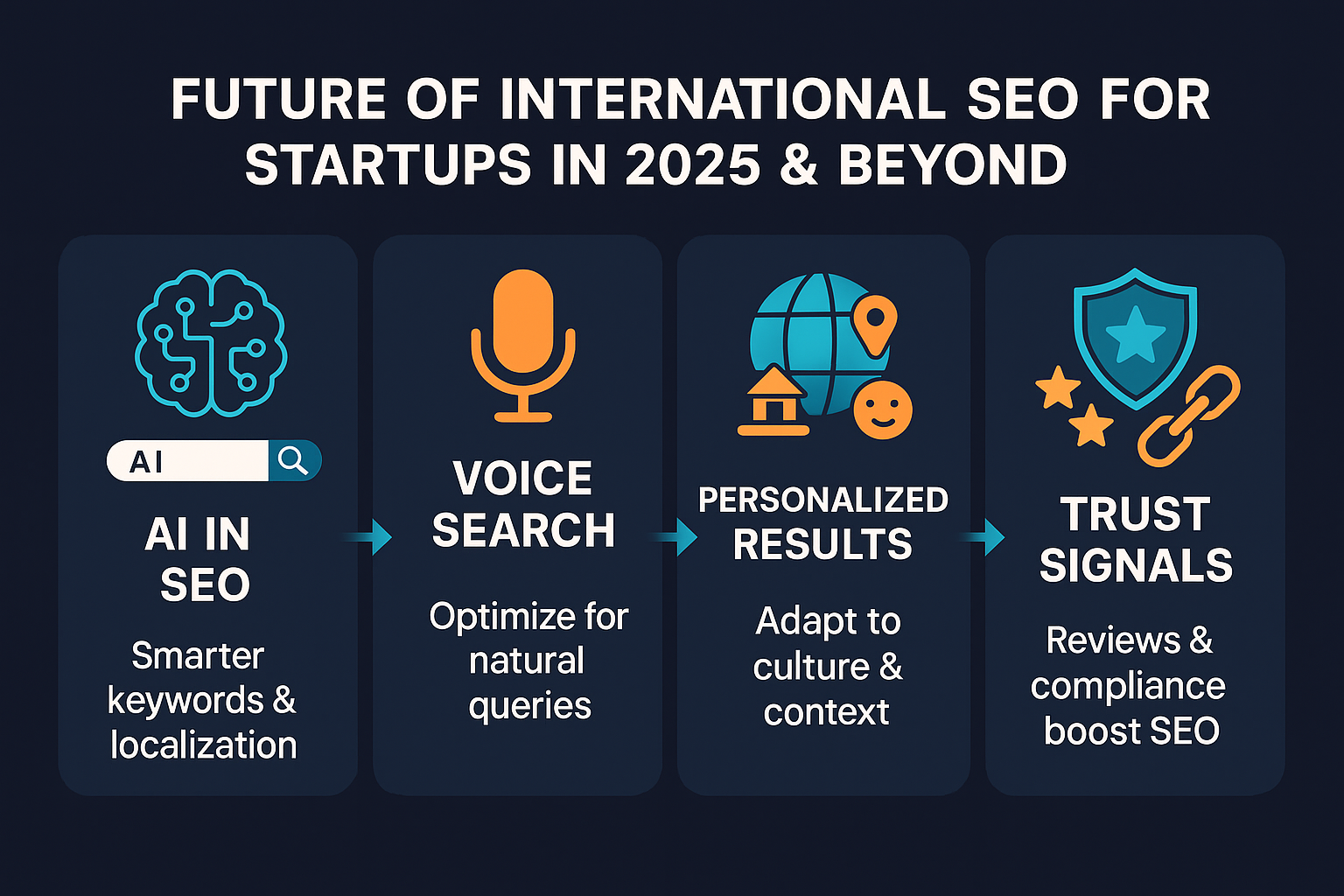
How aboveA Helps Startups Enter New Markets with SEO?
Expanding into global markets is exciting, but without the proper support, startups often waste budget on trial-and-error campaigns. That’s where aboveA’s international SEO services for startups make the difference. We specialize in helping early-stage companies increase visibility, attract qualified leads, and scale globally without overspending.
Our process starts with international keyword research. Instead of guessing, we analyze what buyers search for in each country, uncovering demand patterns that guide smarter startup market entry strategies. Whether your focus is Europe, Asia, or North America, our team identifies the opportunities that deliver results fastest.
We also prioritize content localization over simple translation. At aboveA, we create market-specific SEO content that adapts tone, product naming, and pricing formats to local cultures. This ensures your startup not only ranks but also converts by connecting with customers in a natural, trustworthy way.
On the technical side, our experts handle hreflang SEO, domain structures, and site speed optimization, ensuring your website performs optimally in every market. We also build authority through regional link building, securing placements in local media and industry directories to strengthen trust signals.
Our international SEO services for startups include:
Global Keyword Research – identify profitable terms across multiple languages and markets.
Content Localization – adapt content to cultural, linguistic, and buyer expectations.
Technical SEO Setup – manage hreflang, domain structures, and speed optimization.
Regional Link Building – build authority with local publishers and industry outlets.
Analytics & Market Tracking – measure performance, conversions, and ROI per region.
What makes aboveA unique is our startup-first approach. Every SEO plan is designed to be cost-efficient and ROI-driven, giving founders a clear path to international growth.
Conclusion
Expanding into global markets doesn’t need to drain resources. With the right international SEO services for startups, founders can reach new audiences, test demand, and scale without overspending on ads. SEO provides long-term visibility, builds trust, and delivers measurable ROI across countries. From keyword research and content localization to hreflang setup and regional link building, the right strategy ensures every step supports growth. For startups, investing early in SEO for global markets is the most innovative way to compete internationally. With aboveA, you gain a partner committed to building sustainable, cost-efficient market entry strategies.
Frequently Asked Questions
What are international SEO services for startups?
International SEO services help startups expand into new markets by optimizing websites for multiple languages, regions, and search engines, ensuring visibility, credibility, and conversions across global audiences.
How is international SEO different from local SEO?
Local SEO targets one region with local directories and keywords, while international SEO involves multiple countries, hreflang setup, localized content, and global keyword research to attract cross-border customers.
What’s the cheapest way for startups to enter new markets?
The cheapest way is investing in international SEO services. Unlike ads, SEO builds lasting visibility, generates consistent organic traffic, and allows testing market demand before heavy spending.
How long does international SEO take to show results?
Most startups see measurable results from international SEO services within three to six months, depending on competition, localization quality, and authority-building in their chosen target markets.
Why should startups choose SEO over ads for market entry?
Startups should choose SEO over ads because international SEO builds long-term organic traffic, brand credibility, and measurable ROI, while ads stop delivering results immediately after the budget ends

